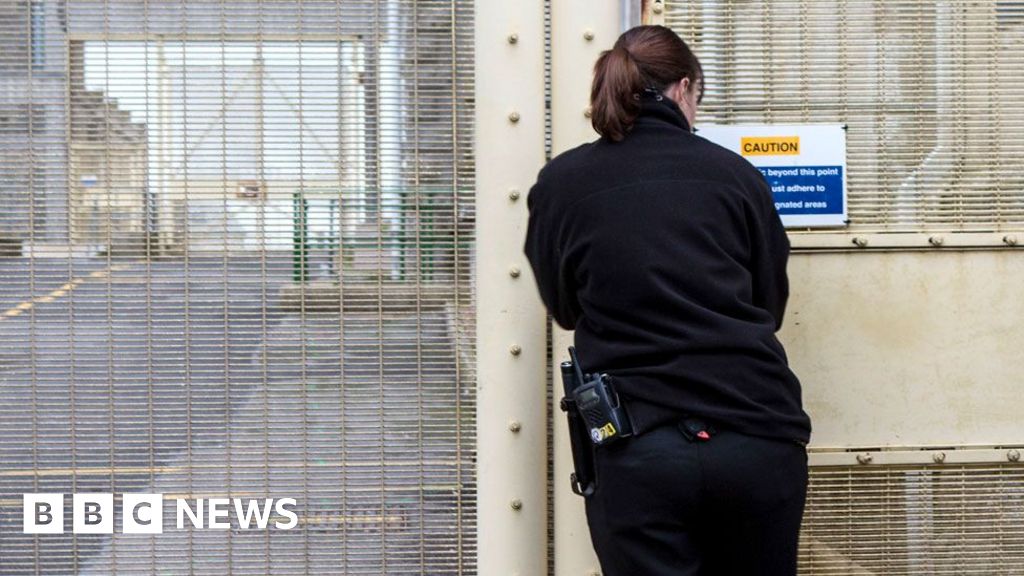
The government is releasing 1,100 more prisoners early, as part of its emergency plan to ease overcrowding in jails in England and Wales.
Offenders serving more than five years will be released on licence after spending 40% of their time behind bars, a scheme that excludes those convicted of serious violence, sex crimes and terrorism.
The second tranche of emergency releases since September comes as ministers launch a major review of sentencing that is likely to lead to new forms of punishment outside of jails.
The review aims to reduce overcrowding and could lead to judges having powers to sentence people to “prison outside prison” with a form of house arrest.
“We have to expand the use of punishment outside of prison,” Justice Secretary Shabana Mahmood told BBC Radio 4’s Today programme.
“We have to have a long-term plan that gets us in a different position where prison has a place, and it works, keeps the public safe but also we do better at rehabilitating offenders as well.”
Tuesday’s early releases are the second part of the emergency plan announced by ministers days after the general election, amid dire warnings from officials that the jails were running out of space.
The scheme frees 5,500 spaces across England and Wales by releasing some offenders, to be monitored on a licence in the community, after 40% of their sentence behind bars, down from the standard 50%.
Many of those leaving jail on Tuesday will come from open prisons, meaning they have been working towards rehabilitation.
The prison population has been growing by around 4,500 a year – faster than previous governments had built new cells.
The justice secretary said the Labour government would build 14,000 spaces promised but not delivered by the Conservatives – but she also wanted to change the way sentencing works to prevent the overcrowding crisis repeating.
“We have an opportunity now to reshape and redesign what punishment outside of a prison looks like,” she said.
“It still has to be punishment, they still have to have their liberty curtailed, people have to know and believe there are consequences to breaking our laws,” she added.
The sentencing review will be led by David Gauke, a former Conservative justice secretary.
His report, expected next spring, will look at replacing short prison sentences with new forms of community punishment and using technology to improve rehabilitation.
Officials have already been looking at expanding the use of successful “sobriety tags” that monitor if an offender drinks alcohol.
They also want to look at the case for smart watch-like devices, piloted in some parts of the US, which send ‘nudge’ messages to offenders.
Trials have indicated they can improve how ex-offenders, who often live chaotic lives, comply with their rehabilitation.
Mahmood said that whatever the final proposals, there should always be a cell available for dangerous offenders – a duty the system came perilously close to failing to meet this summer when it was down to less than 100 available spaces.
The current prison population is 87,465, with 1,671 vacant places remaining.
Andrew Nielson, campaigns director of the Howard League for Penal Reform, welcomed the sentencing review.
He told the BBC that Tuesday’s emergency prisoner releases were “a really blunt tool” and “far from an ideal situation” because some inmates will not be ready to return to the community.
“This only buys the government some time. By this time next year, if not sooner, they’ll be facing the same issues again,” he said. “That’s why the sentencing review is so important.
One of Labour’s first acts after winning the election was to implement the early release scheme, drawn up by the previous government.
The first set of early releases under this strategy came in September, when 1,700 offenders left prison, reducing the overall prison population to 86,333.
However, there were some serious mistakes by the government.
Some people who should not have been released were set free. Thirty-seven inmates whose sentences had not been properly logged were let out in error. The Ministry of Justice says they have now all been returned to custody.
The BBC discovered some released offenders who should have been fitted with an electronic tag to monitor their movements had not been fitted with the device.
Critics have previously voiced concerns about the scheme’s impact on public safety, with a probation union warning it amounted to “moving the problem from one place to another without properly assessing the risks”.
Mark Fairhurst, national chair of the Prison Officers Association, told the BBC the recall rate for released prisoners is “as high as 50%” in some areas – meaning half of inmates released on licence breached their conditions and were brought back to prison.
The justice secretary said recall rates from the last round of emergency releases were “roughly in line” with normal prison releases.
“We have strict licence conditions. If they are broken it is right that those people are recalled to prison,” she told BBC Breakfast.
While the emergency release scheme has reduced the population from its peak of 89,000, officials say jails could reach another crisis point from next July if other measures fail to work.
One of those plans is to give magistrates the power to jail offenders for up to 12 months – doubling their sentencing power.
Officials say that move will help cut the 17,000 offenders on remand in cells waiting for their prosecutions to be completed – meaning they can’t be moved through the system towards rehabilitation.
However, the Criminal Bar Association was concerned it would “sharply increase” the prison population – because some defendants would opt for a trial rather than receiving a 12-month jail sentence.
It said this would mean adding their cases to the existing backlog in the crown courts.
This post was originally published on this site be sure to check out more of their content.








